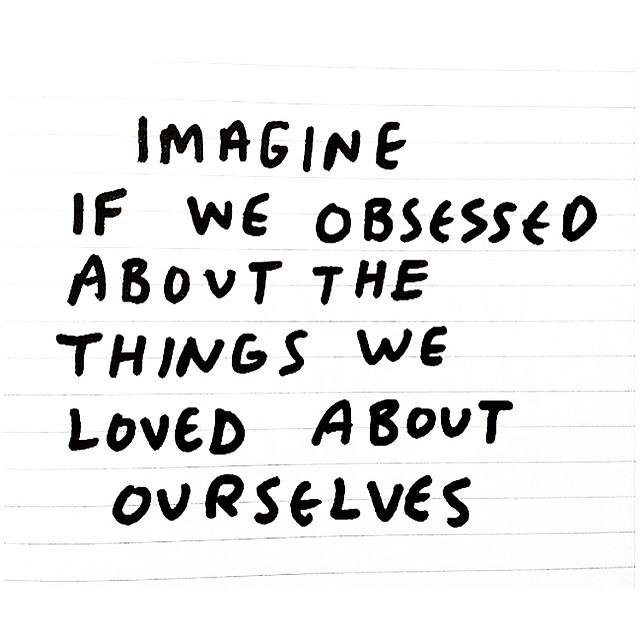Practicing Self-Compassion Increases Your Self-Esteem

Practicing self-compassion can help you increase self-esteem, become more confident and less critical with yourself. Self-compassion is a positive self-view that involves relating to oneself with kindness and acceptance in times of difficulty, rather than criticizing, you look at your situation with compassion. Learn how to increase your self-esteem by practicing self-compassion.
I've been teaching self-compassion to many of my groups lately and the feedback has been overwhelmingly positive. Students report feeling validated, less critical and happier with themselves. Their self-esteem has improved. Practicing self-compassion doesn't have to be hard, it's small shifts in thinking that make it so easy to implement.
How Practicing Self-Compassion Increases Self-Esteem

Practicing self-compassion means we attempt to find compassion in our pain or situation because no human is perfect. In fact, we are all imperfect beings. We try to compare ourselves to perceived norms that only makes our self-criticism increase and self-esteem plummet. Self-compassion is different from self-esteem but both are needed to develop a strong sense of self-worth. Self-esteem is how we see ourselves and what we think about ourselves, self-compassion is more about how we treat ourselves.
Three Essential Pieces to Practicing Self-Compassion
- Being kind to one's self: This means understanding, not punishing, yourself. What would you say to a friend or loved one in your position? It involves comforting yourself. You may try to change in ways that allow you to be more healthy and happy, but this is done because you care about yourself, not because you are worthless or unacceptable as you are.
- Sense of common humanity: We are all human and make mistakes; no one is perfect, neither am I. Self-compassion involves recognizing that suffering and personal inadequacy is part of the shared human experience – something that we all go through rather than being something that happens to “me” alone, even though it sometimes feels that way.
- Mindfulness: This means awareness of your feelings and thoughts in the moment.
In my group this week, one of the students reported trying to add in more self-care to her routine, which for her meant eating more balanced meals. Instead of sticking to a goal of "eating breakfast every single day" we urged her to try to eat something in the morning, most days, if she could.
When she came back to report how she did instead of criticizing herself she said, "I tried to eat breakfast a few times and then I got sick. I wasn't feeling well so it was hard for me to meet my goal, which I feel like happens to a lot of people when they don't feel well. I did pack some bars in my purse too in case I got hungry during the day. That's the best I could do this week."
My jaw almost dropped. This is one of the most self-critical students I've worked with. She didn't blame herself for being sick, she didn't say "I should have tried harder." She was kind to herself and noted that most people have a hard time doing their work and reaching goals when they are sick (yes!), not to mention she was mindful of how she wanted to improve.
Practicing Self-Compassion Leads to Greater Happiness
Research on self-compassion shows that people who are compassionate to themselves are much less likely to be depressed, anxious, and stressed. They are much more like to be happy, resilient, healthy and optimistic about their future; they have better mental health.
Leading researcher in self-compassion and author Kristin Neff, Ph.D., is an associate professor in human development and culture at the University of Texas, Austin. She is the author of the book Self-Compassion: Stop Beating Yourself Up and Leave Insecurity Behind (William Morrow). Neff, explains in this fantastic TEDx talk that people may think that being kind to yourself makes you less motivated. Actually the opposite is true. The harder you are on yourself the more your body attacks yourself, both mentally and physically.
10 Simple Ways to Start Practicing Self-Compassion
- Hug yourself or someone you love (it releases oxytocin the chemical that makes you feel connected and loved).
- Get a massage or practice self-care.
- Remind yourself that you are doing the best you can in this very moment.
- Talk to yourself like you would to a young child or pet when you've made a mistake.
- Spend time with people who are supportive and kind to you.
- Say no to others when you need to take care of yourself or feel like you are getting sick.
- Ask for company to come over if you are feeling lonely.
- Eat warm foods, it activates a feeling of comfort (hot tea or warm milk also work).
- Tell yourself that you are loved.
- Call a friend or family member who is supportive to help you see another side of the situation if you are in a crisis or stuck in a negative thinking cycle.
Remember, you more than anyone deserve kindness and respect. Self-compassion starts with you.
Emily is the author of Express Yourself: A Teen Girls Guide to Speaking Up and Being Who You Are. You can visit Emily’s Guidance Girl website. You can also find her on Facebook, Google+ and Twitter.
APA Reference
Roberts, E.
(2015, October 23). Practicing Self-Compassion Increases Your Self-Esteem, HealthyPlace. Retrieved
on 2026, March 2 from https://www.healthyplace.com/blogs/buildingselfesteem/2015/10/practicing-self-compassion-can-increase-self-esteem
Author: Emily Roberts MA, LPC
Thank you so much for this. It is exactly what I needed as I've always felt inadequate... in my relationships, at work, and at home. I've always longed for recognition which I rarely get. Maybe I should try to recognise my strong points, if there are any.
Hi Ruth
SO many strong points, you are brave and posted here, you've expressed yourself and the more you practice looking at yourself with love (very hard I know) the better you will feel.I appreciate you commenting and being so open :)
xo
Emily
When depression hits some hard or daily, it can be very difficult to practice self compassion. The reason a person is depressed is because the self worth is gone and so is the self compassion part. But you are right. A person can wallow in negativity and spiral downward. Or they can apply as much self compassion as possible. Little by little this practice may help in the long run and reduce the number and severity of depression.
Thanks for writing John. Self-compassion can be getting out of bed on some days :) It's also how we talk to ourselves. It's okay if I'm having a hard day, we all have hard days. Is a compassionate response. Thanks so much for reading!

